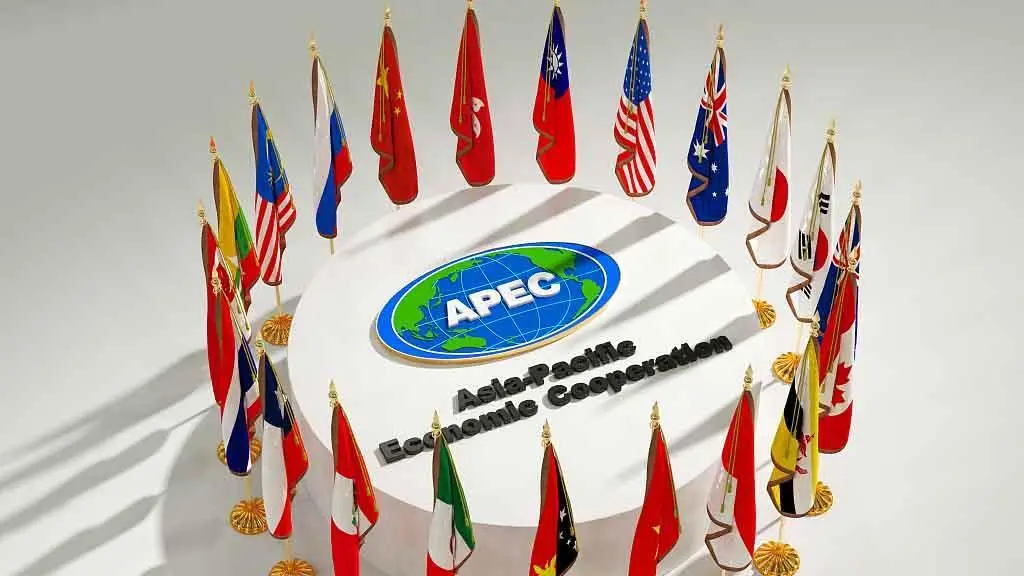APEC summit offers moment for strategic recalibration

by Qaiser Nawab
As leaders convene in Gyeongju, South Korea, for the 2025 Asia-Pacific Economic Cooperation (APEC) Summit, the forum carries a renewed sense of purpose. The setting evokes echoes of the Malaysia round of negotiations — where dialogue, pragmatism, and regional unity prevailed over confrontation. Today, with the global order in flux, the underlying message from Gyeongju is once again clear: engagement, not estrangement, must guide the Asia-Pacific forward.
The gathering comes at a time of heightened strategic competition between the United States and China, the world’s two largest economies, whose uneasy coexistence continues to shape the global economic and security architecture. Yet amid tension, both sides recognise the need to keep communication channels open. With President Xi Jinping and President Donald Trump expected to meet on the sidelines of the summit, Gyeongju may mark a rare opportunity to recalibrate relations that remain strained but indispensable to regional stability.
The 2025 APEC Summit takes place against a backdrop of slowing global growth, supply chain disruptions, and intensifying technological rivalry. The post-pandemic recovery has proven uneven, with trade protectionism and economic nationalism gaining traction across several economies. Meanwhile, competition in advanced technologies, from semiconductors to artificial intelligence, has deepened the divide between major powers, threatening to fragment the global innovation ecosystem.
At the centre of this tension lies the ongoing economic contest between Beijing and Washington. The United States, under the Trump administration, continues to pursue policies that seek to curb China’s access to critical technologies, while advocating for “fair trade” mechanisms designed to reduce dependency on Chinese manufacturing. China, in response, has intensified efforts toward self-reliance in key industries while expanding partnerships across Asia, the Middle East, and Latin America under its Global Governance and Global Development Initiatives.
Yet despite these divergences, neither side can afford complete disengagement. The sheer scale of interdependence — from trade volumes to supply chain integration — ensures that cooperation remains a strategic necessity. APEC thus serves as one of the few remaining multilateral platforms where dialogue between the two powers continues under the umbrella of shared regional interests.
Washington’s “China First” economic approach, focused on reshoring industries and restricting Chinese access to advanced technologies, continues to challenge the principles of open regional trade. Yet there is growing recognition, even within U.S. policy circles, that a zero-sum approach may prove unsustainable.
China’s diplomatic tone at this year’s summit underscores a broader strategic message: the world is shifting toward multipolarity, and global governance must evolve accordingly. Foreign Minister Wang Yi has reiterated that economic issues should not be weaponised or politicised, warning against attempts to divide the world into competing blocs.
Beijing’s approach seeks to present an alternative to confrontation — one grounded in mutual respect, sovereign equality, and collective progress. Through frameworks like the Global Governance Initiative (GGI) and the Global Development Initiative (GDI), China advocates for reforming international institutions to reflect the realities of the 21st century. These initiatives stress fairness in trade, inclusivity in growth, and technological cooperation rather than isolation.
This vision finds quiet support among many developing economies in the region that view APEC as a platform for shared advancement rather than rivalry. The spirit of partnership that once defined Asia’s economic rise now demands renewal.
The APEC summit thus offers a moment for strategic recalibration. The Xi-Trump meeting could inject much-needed confidence into global markets. For the Asia-Pacific region, the mere act of dialogue between the two largest economies serves as reassurance that diplomacy still holds sway over division.
Beyond the U.S.-China dynamic, the broader APEC agenda this year seeks to anchor the region in resilience and shared prosperity. South Korea, as host, has framed the theme “Building a Sustainable Tomorrow: Connect, Innovate, Prosper” to capture the spirit of collective progress. Key discussions are expected on strengthening regional supply chains, bridging digital divides, and advancing green economic transitions.
If APEC 2025 can rekindle that cooperative spirit — even modestly — it will stand as a reminder that engagement remains the region’s greatest asset.
----
Qaiser Nawab is Chairman of the Belt and Road Initiative for Sustainable Development (BRISD), an international platform focused on fostering cooperation and innovation across Asia, Africa, and Latin America.
The views and opinions expressed by guest columnists in their articles may differ from those of the editorial board and do not necessarily reflect its views.
Here we are to serve you with news right now. It does not cost much, but worth your attention.
Choose to support open, independent, quality journalism and subscribe on a monthly basis.
By subscribing to our online newspaper, you can have full digital access to all news, analysis, and much more.
You can also follow AzerNEWS on Twitter @AzerNewsAz or Facebook @AzerNewsNewspaper
Thank you!
